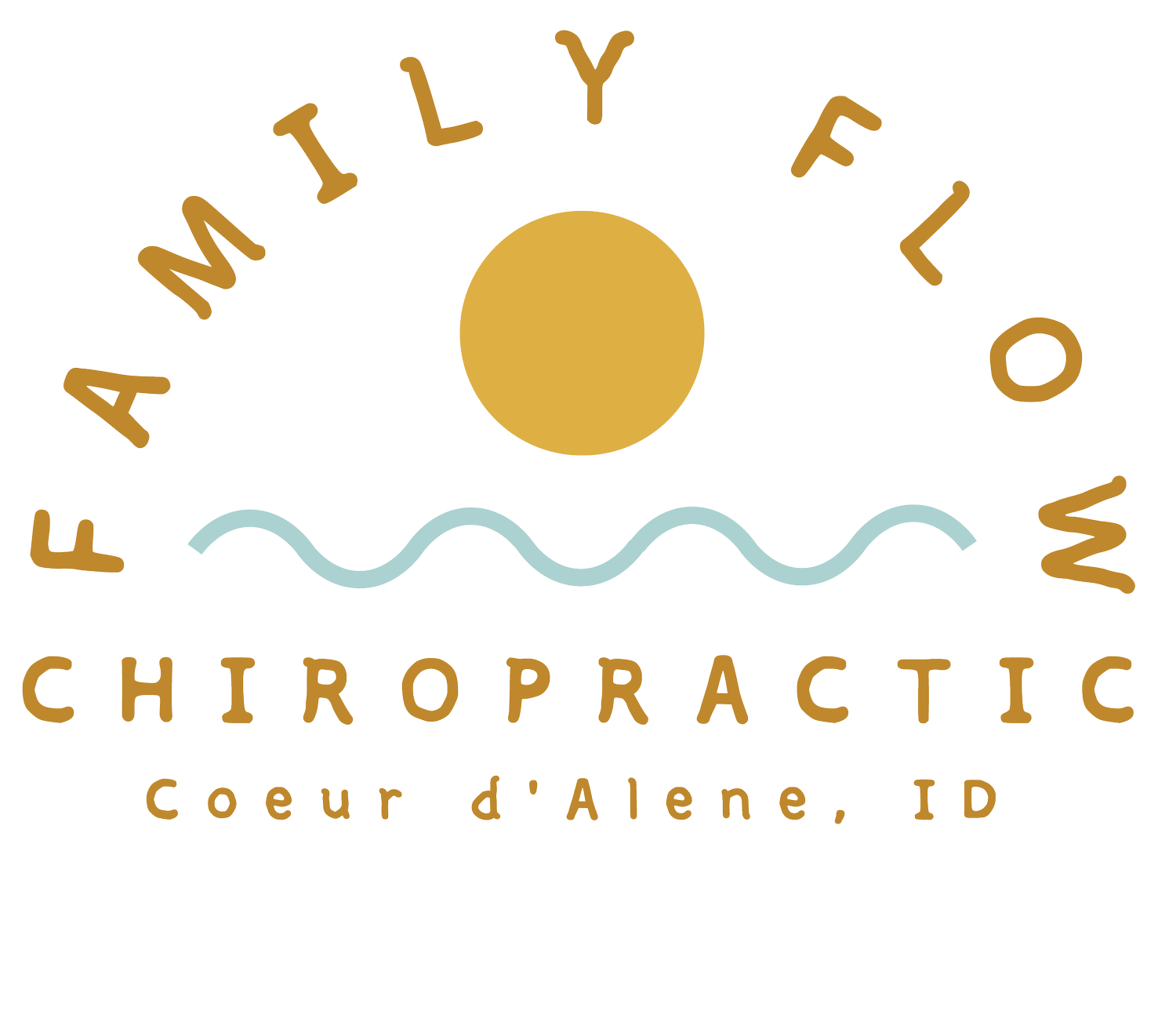Heart Rate Variability: A Key Indicator of Health and Wellness
In the heart of Coeur d'Alene, Idaho, our holistic family chiropractic office is dedicated to enhancing your health and well-being. An important aspect of our holistic approach to health care is the understanding and optimization of Heart Rate Variability (HRV). This powerful health metric offers insight into your body's ability to manage stress, maintain balance, and support overall health. Let's explore what HRV is, why it's crucial for our health, and how you can improve it to live a healthier, more vibrant life.
What is Heart Rate Variability (HRV)?
Heart Rate Variability (HRV) is the variation in time between each heartbeat. Contrary to what some might think, a healthy heart does not tick away with the regularity of a metronome. Instead, it adjusts its rhythm with every beat, responding dynamically to our stress levels, emotions, and physical activities. HRV is a measure of this variability in heart rate, and it's a powerful indicator of the autonomic nervous system's (ANS) efficiency and balance.
The ANS controls many involuntary functions in our body, including heart rate, digestion, and respiratory rate. It comprises two main branches: the sympathetic (fight or flight) and the parasympathetic (rest and digest). A high HRV indicates a robust and balanced ANS, capable of efficiently managing the body's stress responses and maintaining homeostasis. Conversely, a low HRV is associated with stress, fatigue, and a higher risk of cardiovascular diseases.
The Impact of HRV on Overall Health
HRV is not just about heart health; it reflects the overall condition of our body and mind. It's linked with various aspects of physical and mental health, including:
Stress and Anxiety Management: A higher HRV suggests a better ability to cope with stress and recover from anxiety, promoting a calmer and more resilient mental state.
Cardiovascular Health: It correlates with the health of the heart and the risk of heart-related diseases.
Immune System Function: Adequate HRV levels can indicate a well-functioning immune system, ready to fend off illnesses.
Physical Fitness: It can also reflect your level of physical fitness and your body's readiness to perform or recover from exercise.
How to Improve Your HRV
Improving your HRV is about enhancing your body's resilience and balance. Here are some holistic strategies to help you boost your HRV and, by extension, your overall health:
Regular Exercise: Moderate, consistent physical activity is one of the best ways to improve HRV. It strengthens the heart and improves the balance between the sympathetic and parasympathetic nervous systems.
Stress Management: Techniques such as meditation, yoga, and deep breathing exercises can significantly reduce stress levels, thus improving HRV.
Quality Sleep: Ensuring you get enough high-quality sleep is crucial for HRV. Poor sleep can increase stress and negatively impact HRV.
Healthy Diet: A balanced, nutrient-rich diet supports overall health and can improve HRV. Foods high in antioxidants, omega-3 fatty acids, and fiber are particularly beneficial.
Chiropractic Care: Regular chiropractic adjustments can help maintain proper nervous system function, improving the body's stress response and potentially enhancing HRV.
At our holistic family chiropractic office in Coeur d'Alene, we are dedicated to helping you and your family achieve optimal health and wellness. Understanding and improving your HRV is just one way we can support your journey towards a healthier, more balanced life. By integrating holistic health practices with regular chiropractic care, we aim to empower you with the knowledge and tools you need to thrive.
Remember, health is not merely the absence of disease but a state of complete physical, mental, and social well-being. By focusing on metrics like HRV and adopting a holistic approach to health, we can all take meaningful steps towards achieving and maintaining our best health possible. Welcome to a world where your heart's variability is the rhythm to a healthier, happier life.
In the heart of Coeur d'Alene, Idaho, our holistic family chiropractic office is dedicated to enhancing your health and well-being. An important aspect of our holistic approach to health care is the understanding and optimization of Heart Rate Variability (HRV). This powerful health metric offers insight into your body's ability to manage stress, maintain balance, and support overall health. Let's explore what HRV is, why it's crucial for our health, and how you can improve it to live a healthier, more vibrant life.
What is Heart Rate Variability (HRV)?
Heart Rate Variability (HRV) is the variation in time between each heartbeat. Contrary to what some might think, a healthy heart does not tick away with the regularity of a metronome. Instead, it adjusts its rhythm with every beat, responding dynamically to our stress levels, emotions, and physical activities. HRV is a measure of this variability in heart rate, and it's a powerful indicator of the autonomic nervous system's (ANS) efficiency and balance.
The ANS controls many involuntary functions in our body, including heart rate, digestion, and respiratory rate. It comprises two main branches: the sympathetic (fight or flight) and the parasympathetic (rest and digest). A high HRV indicates a robust and balanced ANS, capable of efficiently managing the body's stress responses and maintaining homeostasis. Conversely, a low HRV is associated with stress, fatigue, and a higher risk of cardiovascular diseases.
The Impact of HRV on Overall Health
HRV is not just about heart health; it reflects the overall condition of our body and mind. It's linked with various aspects of physical and mental health, including:
Stress and Anxiety Management: A higher HRV suggests a better ability to cope with stress and recover from anxiety, promoting a calmer and more resilient mental state.
Cardiovascular Health: It correlates with the health of the heart and the risk of heart-related diseases.
Immune System Function: Adequate HRV levels can indicate a well-functioning immune system, ready to fend off illnesses.
Physical Fitness: It can also reflect your level of physical fitness and your body's readiness to perform or recover from exercise.
How to Improve Your HRV
Improving your HRV is about enhancing your body's resilience and balance. Here are some holistic strategies to help you boost your HRV and, by extension, your overall health:
Regular Exercise: Moderate, consistent physical activity is one of the best ways to improve HRV. It strengthens the heart and improves the balance between the sympathetic and parasympathetic nervous systems.
Stress Management: Techniques such as meditation, yoga, and deep breathing exercises can significantly reduce stress levels, thus improving HRV.
Quality Sleep: Ensuring you get enough high-quality sleep is crucial for HRV. Poor sleep can increase stress and negatively impact HRV.
Healthy Diet: A balanced, nutrient-rich diet supports overall health and can improve HRV. Foods high in antioxidants, omega-3 fatty acids, and fiber are particularly beneficial.
Chiropractic Care: Regular chiropractic adjustments can help maintain proper nervous system function, improving the body's stress response and potentially enhancing HRV.
At our holistic family chiropractic office in Coeur d'Alene, we are dedicated to helping you and your family achieve optimal health and wellness. Understanding and improving your HRV is just one way we can support your journey towards a healthier, more balanced life. By integrating holistic health practices with regular chiropractic care, we aim to empower you with the knowledge and tools you need to thrive.
Remember, health is not merely the absence of disease but a state of complete physical, mental, and social well-being. By focusing on metrics like HRV and adopting a holistic approach to health, we can all take meaningful steps towards achieving and maintaining our best health possible. Welcome to a world where your heart's variability is the rhythm to a healthier, happier life
How Chiropractic Care Can Help Relieve Headaches
How Chiropractic Care Can Help Relieve Headaches
Headaches are among the most common physical complaints that can significantly affect the quality of life. For many, these recurring aches are not just a temporary inconvenience but a chronic issue. It's essential to understand that headaches are often deeply intertwined with the health and functioning of the nervous system.
The nervous system, which includes the brain, spinal cord, and a vast network of nerves, controls everything your body does. It's like the body's electrical wiring system. When there is a problem in this system, it can manifest in various ways, one of which is headaches.
The Chiropractic Approach to Headaches
As a family chiropractic office focusing on the nervous system, we take a holistic approach to treating headaches. Chiropractic care is not just about addressing the pain but also about understanding and treating the underlying causes.
1. Spinal Adjustments and Alignment
One of the primary treatments in chiropractic care is spinal manipulation or adjustment. Misalignments in the spine, known as subluxations, can lead to tension and irritation in the nervous system. This tension can contribute to headache symptoms. By correcting these misalignments, we can reduce nerve irritation and improve overall nervous system function, which in turn can alleviate headache symptoms.
2. Lifestyle Recommendations
We understand that your lifestyle plays a crucial role in your overall health. Poor posture, stress, and nutritional deficiencies can all contribute to headaches. We provide personalized recommendations to help you improve your posture, manage stress, and optimize your diet. These changes aim to support your nervous system's health and reduce the frequency and severity of headaches.
3. Preventative Care
Our goal is not just to treat headaches when they occur but to prevent them from happening in the first place. Regular chiropractic adjustments can help maintain spinal health and nervous system function, potentially reducing the likelihood of headache occurrence.
4. Family-Centric Care
As a family-based practice, we recognize the importance of treating all family members, regardless of age. Headaches can affect everyone, from children to adults. We offer tailored care plans for each family member, focusing on preventative care and healthy nervous system function.
Success Stories and Research
Numerous studies have supported the effectiveness of chiropractic care in treating headaches. For example, a 2011 study in the Journal of Manipulative and Physiological Therapeutics reported significant improvements in migraine symptoms following chiropractic treatment.
We've also seen firsthand the positive impact chiropractic care can have on individuals suffering from headaches. Many of our patients have experienced a significant reduction in headache frequency and intensity, leading to a better quality of life.
Headaches can be more than just a pain; they can be a sign that something is off with your nervous system. Chiropractic care offers a safe, effective, and non-invasive way to not only alleviate headache symptoms but also to address the root causes. By focusing on spinal health and overall nervous system function, we can help you and your family find relief and enjoy a healthier, more comfortable life.
Remember, every individual is unique, and the best way to determine if chiropractic care is right for you is through a comprehensive evaluation. We invite you and your family to discover how chiropractic care can transform your health and wellbeing.


